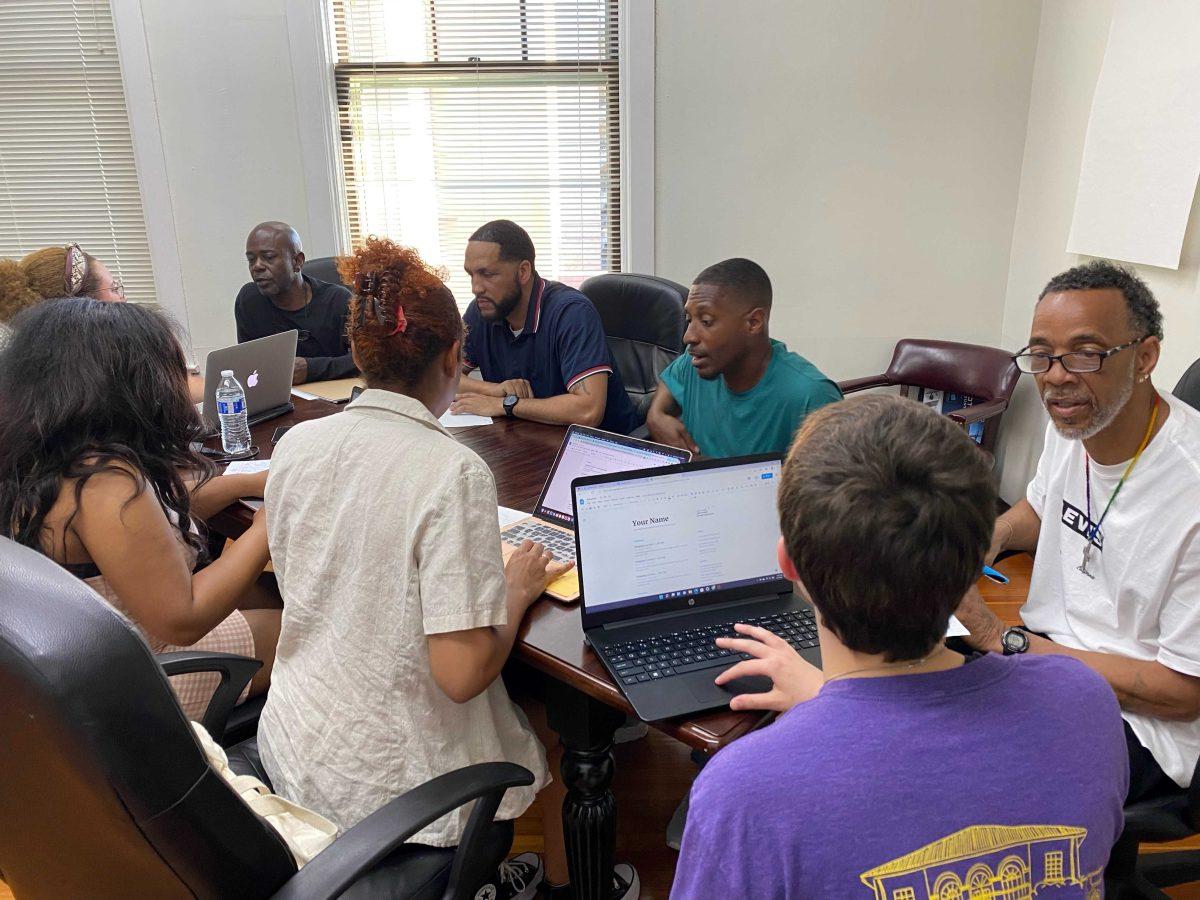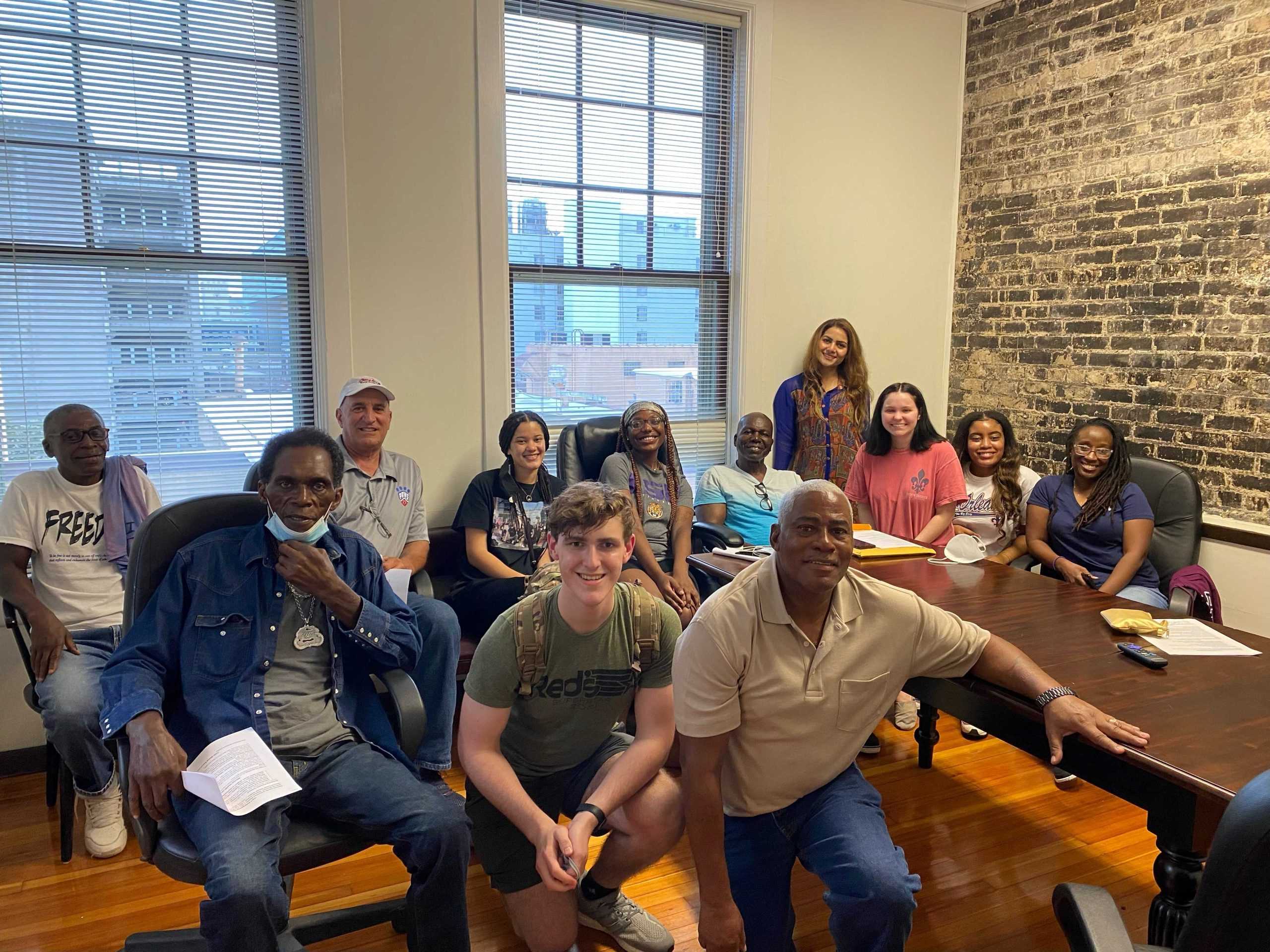Despite reforms in recent years, Louisiana continues to have some of the highest incarceration rates in the world, having more people in jail than any other democracy on Earth, according to a 2021 report conducted by the Prison Policy Initiative.
Those staggering rates are what motivates Tiger Prison Project and Project Reformation’s work to educate the campus community on the issue and volunteer with the Parole Project to assist formerly incarcerated people in Baton Rouge.
“We’re trying to educate students on campus about prison reform, mass incarceration and the prison industrial complex as a whole,” said African American studies senior and president of Tiger Prison Project Kaya Lewis.
The primary goal of Tiger Prison Project is to mobilize the campus community and have them acknowledge the humanity of those that are currently incarcerated or have been previously, as well as the systematic and often overlooked struggles they endure.
The organization’s reach has extended past weekly meetings, with volunteers from the group directly assisting formerly incarcerated people in Baton Rouge.
Awareness of the problems presented by the criminal justice system is the first step, Lewis said.
“I think that most students have a disillusionment to some extent,” Lewis said. “I think everyone still has things to learn. Even myself, having studied this my whole college career, I know there’s still a lot I don’t know. There’s a lot going on.”
Lewis said that when Tiger Prison Project advocates at the state capitol, they usually start with base-level information, testing the waters of onlookers’ familiarity to their cause. She said project members usually start by sharing information they’ve never heard before.
Tiger Prison Project holds general meetings that typically feature a professor, attorney or someone who has been through the criminal justice system acting as a guest speaker.
They also regularly hold workshops in conjunction with Parole Project where they interact and help incarcerated and recently released individuals with specifically tailored projects, like resume building or smartphone crash courses.
Project Reformation began as the capstone project for mass communication senior Kate Wells, but has since become a passion of her and her teammates.
Project Reformation is an outreach to the community–especially the campus community. Wells said that many students are aware of the problems associated with mass incarceration but lack consciousness of the intricacies outside of the overarching problem.
They are currently focusing on educating the community on Senate Bill No. 336, which would significantly raise the requirements needed for incarcerated juveniles to seek parole.
“These are kids only a few years younger than us,” Wells said. “They could be our peers in college one day. They’ve been given a bad label entirely”
Wells said that of the recidivism among juvenile lifers is around 1%. She said that the minds of these offenders haven’t fully developed; the system considers them irredeemable when they’re still children.
Parole Project was co-founded by Andrew Hundley, the first Louisiana “juvenile lifer” to be paroled after the U.S. Supreme Court’s verdict in Miller v. Alabama and Montgomery v. Louisiana. The conclusions of these cases meant that life imprisonment of a minor was considered cruel and unusual punishment, and therefore unconstitutional.
When Hundley was released in 2016, he emerged as a far different person than when he was convicted in 1997. He immersed himself in education courses while in prison, completing numerous programs and serving as a leader in multiple prisoner organizations.
Hundley is a graduate of Baton Rouge Community College, LSU, and earned a master’s degree in Criminology and Justice from Loyola. He serves as executive director for the Parole Project.
His story mirrors the goals of Parole Project–to successfully integrate their clients—most having served 20 years or more incarcerated—back into society.
According to Wells, only 60 of the 300 juvenile lifers have actually been paroled despite the verdicts of Miller v. Alabama and Montgomery v. Louisiana.
She adds that 93% of those children are Black. Louisiana is three times more likely to to sentence juveniles to a life sentence.
Kelly Garrett is deputy director of client services at Parole Project. She said that there’s always been a need for it, but the need was magnified after the Supreme Court rulings.
“There’s always been a need for transitional services for individuals transitioning back into society,” Garrett said. “2022 is very different from pre-COVID. It’s very different than what 2010 was or 2000.”
Grocery stores, for example, have changed a lot in the past 20 years. Garrett said that the Parole Project offers classes designed to introduce participants to new stores that can otherwise seem confusing and overwhelming.
Other classes focus on budgeting, interview skills, employment skills, health care and interpersonal skills.
Parole Project reentry manager Christi Cheramie said that it’s important to meet the individual needs of the clients because everyone’s starting at a different place.
Cheramie joined the Parole Project after serving 25 years in prison and going through the project herself. Even with help from her family, Cheramie felt like she needed something more. She is a firm believer in the organization and process.
“All of the tools that I was given as a client helped guide me to this point in my life, I was able to turn around and give that back to clients I encountered, just like myself,” Cheramie said. “We all came from the same place and faced this same struggle so who better to teach than someone who has that same experience.”
According to Garrett, the majority of the staff at Parole Project is composed of formerly incarcerated individuals. She and Cheramie also said that many activities operate thanks to the help of volunteers, of which include Tiger Prison Project members.
“That’s when our volunteer work comes in,” Lewis said. “We have workshops with incarcerated people, helping them readjust. We help them learn new technology like how to use cell phones, tangible things like helping them build resumes.”
Lewis said that sometimes making human connection is just as important as the instructional courses of a workshop.
“We have to remember that these are people, the same as us,” Lewis said.
Lewis said that the prison industrial complex is responsible for systematically discouraging and dehumanizing those who go through it.
She said that it runs as deep as the language. The words “prisoner” and “inmate” don’t carry the compassion that she wants to share with the formerly incarcerated individuals she works with.
More than anything, Lewis wants the community to remain aware of the problems presented by the criminal justice system and prison-industrial complex.
“When you stop viewing people as people, that’s when you become complacent in your views, that’s when systematic abuse gets excused,” Lewis said.









